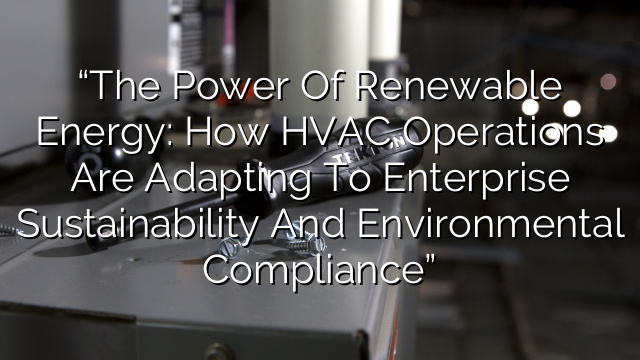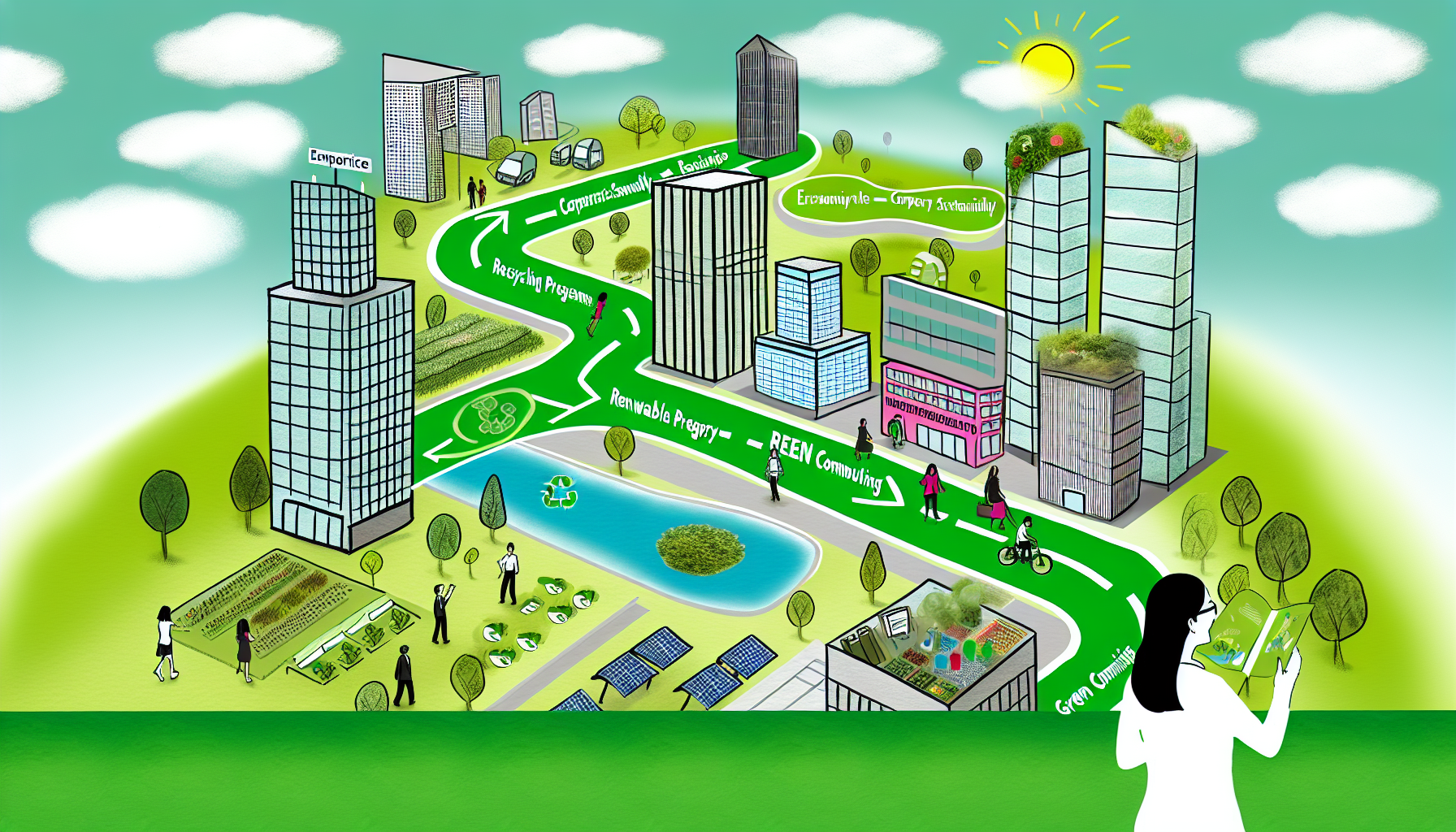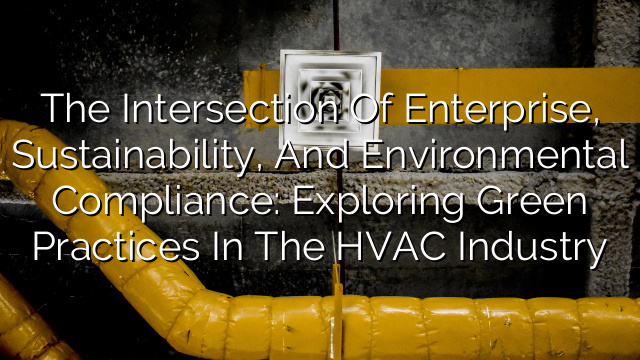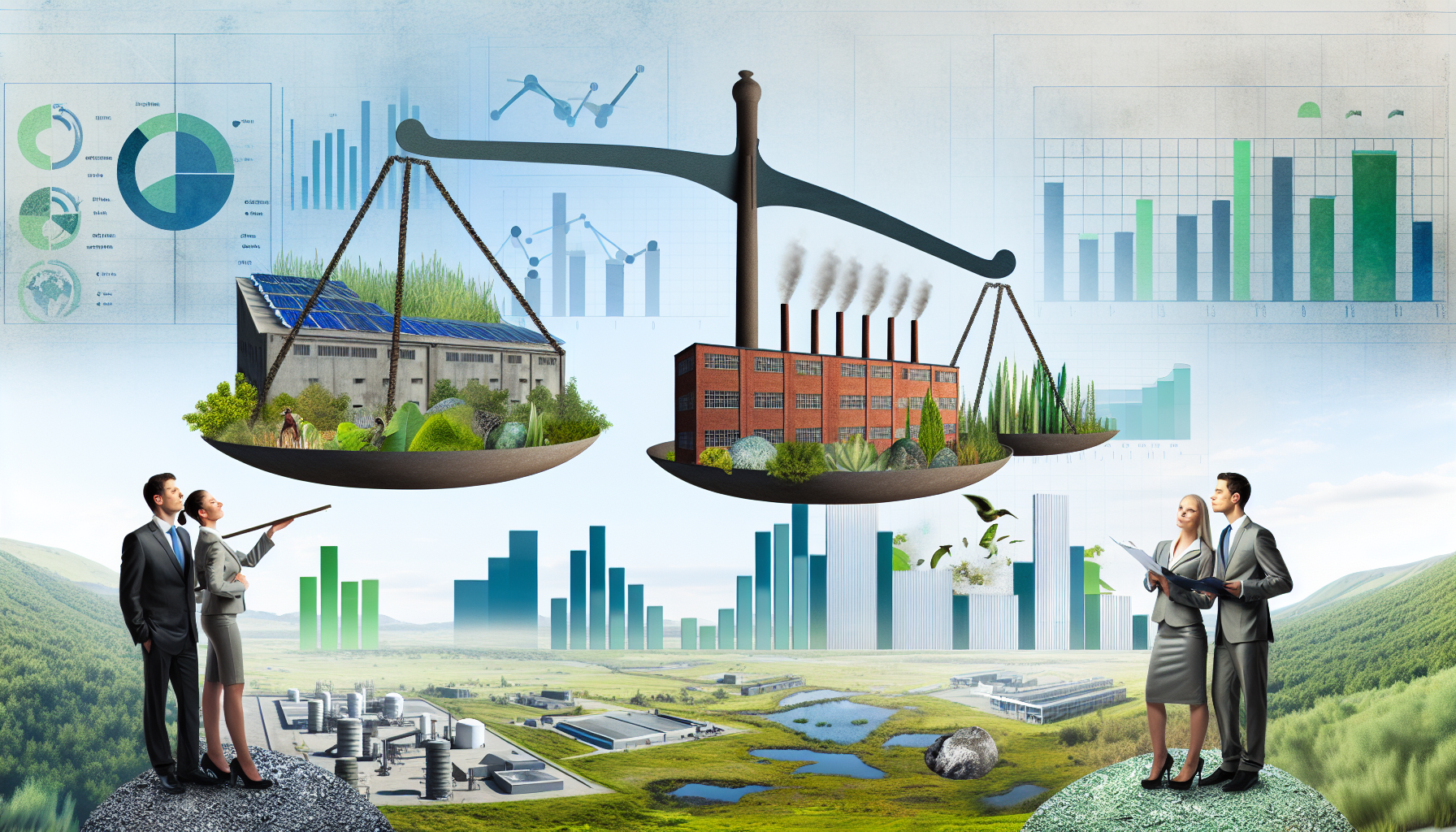Introduction
Renewable energy has become a hot topic in recent years, as individuals and businesses alike acknowledge the importance of sustainable practices and environmental compliance. One industry that is making significant strides in this area is HVAC (Heating, Ventilation, and Air Conditioning) operations. With their high energy consumption, HVAC systems have traditionally been a contributor to carbon emissions and energy waste. However, advancements in technology and a growing focus on enterprise sustainability have led to the development of innovative solutions that are not only environmentally friendly, but also cost-effective and efficient.
The Need for Renewable Energy in HVAC Operations
The HVAC industry plays a crucial role in maintaining comfortable and healthy indoor environments, but the energy consumption associated with these systems is a cause for concern. Commercial buildings, in particular, account for a significant portion of global energy usage, and HVAC systems can contribute up to 40% of the total energy consumption in these buildings. This high energy demand has led to increased carbon emissions and environmental impact.
To combat these issues, HVAC operations are increasingly turning to renewable energy sources such as solar power, wind power, and geothermal energy. These sources offer a sustainable and reliable alternative to traditional energy sources such as fossil fuels. By harnessing these renewable resources, HVAC systems can significantly reduce their carbon footprint and contribute to a more sustainable future.
Adapting to Renewable Energy Sources
Embracing renewable energy sources requires changes to both the design and operation of HVAC systems. Here are some ways that HVAC operations are adapting to renewable energy sources:
- Integration of Photovoltaic (PV) Systems: Solar power is one of the most widely available and accessible renewable energy sources. HVAC systems can be designed to integrate photovoltaic (PV) systems, which convert sunlight into electricity. By harnessing solar energy, HVAC systems can offset a significant portion of their electricity consumption.
- Use of Wind-Powered Ventilation: Wind energy can also be utilized by HVAC systems through the use of wind-powered ventilation. By incorporating wind turbines or wind-powered fans, HVAC systems can tap into the natural airflow and reduce the reliance on electricity.
- Geothermal Heat Pumps: Geothermal energy offers a highly efficient and reliable source of heating and cooling. Geothermal heat pumps utilize the natural heat stored in the earth to provide heating in the winter and cooling in the summer. These systems can significantly reduce the energy consumption of HVAC operations while maintaining optimal comfort levels.
- Energy Storage: To ensure continuous operation, HVAC systems need reliable energy storage solutions. Renewable energy sources such as solar and wind power can be unpredictable, making energy storage crucial. By utilizing advanced energy storage technologies, HVAC systems can store excess energy and use it during periods of high demand.
- Smart Controls and Energy Management Systems: Smart controls and energy management systems are becoming increasingly popular in HVAC operations. These systems enable better monitoring, control, and optimization of energy usage. By incorporating renewable energy sources into these systems, HVAC operations can maximize the utilization of renewable energy and reduce wasteful practices.
The Benefits of Renewable Energy in HVAC Operations
The adoption of renewable energy sources in HVAC operations offers numerous benefits, including:
- Reduced Carbon Footprint: By utilizing renewable energy sources, HVAC systems can significantly reduce their carbon emissions, helping combat climate change and improve air quality.
- Cost Savings: Renewable energy sources can lead to significant cost savings in the long run. While the initial investment may be higher, the lower operational costs and potential incentives can offset this expense over time.
- Energy Independence: Relying on renewable energy sources reduces dependence on fossil fuels, which are finite resources and subject to price fluctuations. By generating their own energy, HVAC operations can achieve a level of energy independence and stability.
- Improved Reputation: Demonstrating a commitment to sustainability and environmental compliance can enhance a company’s reputation and attract environmentally conscious customers.
- Compliance with Regulations: Many countries and regions have implemented regulations and incentives to encourage the use of renewable energy sources. By adopting renewable energy in HVAC operations, businesses can ensure compliance with these regulations and benefit from potential incentives.
FAQs
Q: Will switching to renewable energy sources increase the upfront costs of HVAC systems?
Switching to renewable energy sources may require an initial investment, but the long-term cost savings and potential incentives can offset this expense. Additionally, advancements in technology have made renewable energy solutions more accessible and affordable.
Q: Are renewable energy solutions reliable enough to support HVAC operations?
Yes, renewable energy solutions are becoming increasingly reliable. However, to ensure continuous operation, it is important to incorporate energy storage systems and backup power sources into HVAC systems.
Q: How long does it take for HVAC systems to see a return on investment from renewable energy solutions?
The return on investment for renewable energy solutions in HVAC systems can vary depending on factors such as the size of the system, energy consumption, and local incentives. On average, businesses can expect to see a return on investment within five to ten years.
Q: Can renewable energy solutions be integrated into existing HVAC systems?
Yes, renewable energy solutions can be integrated into existing HVAC systems. However, it is important to assess the compatibility and feasibility of the system before making any changes.
Q: Do renewable energy solutions require additional maintenance?
Renewable energy solutions generally require minimal maintenance compared to traditional energy sources. However, regular maintenance and inspections are still necessary to ensure optimal performance and longevity.
Q: Are there any scalability limitations when it comes to renewable energy solutions for HVAC operations?
Renewable energy solutions for HVAC operations can be scaled to meet the specific needs of each building or facility. From small residential buildings to large commercial complexes, there are scalable solutions available for various requirements.
Conclusion
The adoption of renewable energy sources in HVAC operations is not only environmentally responsible but also financially beneficial. By harnessing the power of renewable energy, HVAC systems can reduce their carbon footprint, lower operational costs, and ensure compliance with regulations. As technology continues to evolve, the integration of renewable energy solutions in HVAC operations will play a significant role in achieving enterprise sustainability and environmental compliance.







